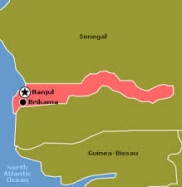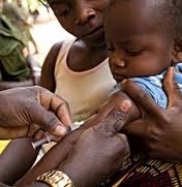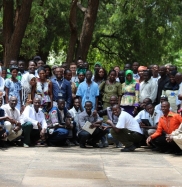Overview of the MRC Unit: ![]()
The Medical Research Council (MRC) The Gambia is a Unit of the MRC(UK). Our Scientific vision is to contribute to the post-2015 sustainable development agenda by producing evidence based research to improve health in West Africa and beyond. Our vision will be achieved by creating an enabling environment for research and conducting multidisciplinary research.
The Tuberculosis Research Program:
The tuberculosis Research Program is headed by Dr Jayne Sutherland. This program is under Vaccines and Immunity Theme which is headed by Professor Beate Kampmann.
Our Team:
- Dr Jayne Sutherland, Head of the TB research platform and TB Immunology laboratory
- Prof. Beate Kampmann, Theme leader and head of childhood TB research programme
- Dr Martin Antonio, Head of Molecular Microbiology
The main platform for TB research at MRC is the TB case-contact (TBCC) study, which is a powerful tool for analysing human M. tuberculosis (Mtb) infection across the entire spectrum of infection, disease and treatment outcome. We have a multidisciplinary approach to our research, aimed at analysis of both host and pathogen factors, and have assembled a valuable bio-repository of multiple sample types available for future research.
Additional Projects:
- TBVAC2020: MRC contribution to TBVAC2020 is to determine biomarkers of early protective immunity to Mtb infection. We will use RNA and plasma samples collected from highly exposed contacts of TB index cases to compare those who remain TST negative (presumed uninfected) with those who convert from negative to positive in a 3-month period. This will allow us to establish correlates of protection prior to establishment of latent TB infection for future vaccine development.
- Gates Grand Challenge 6 2013: This is an extension of a previous project (GC6-74) aimed at defining biomarkers of protective immunity to TB. Samples collected from subjects who progressed to active TB compared to those who did not will allow us to determine correlates of risk. Systems biology is currently being performed to identify RNA and plasma signatures in collaboration with multiple African sites, Europe and America.
- Childhood Tuberculosis: Integrating tools for improved diagnosis. This project extends contact tracing to the children in households of smear positive index cases. Together with TST and microbiological testing, all consented children have blood samples taken for immunological and metabolomic profiling to develop and evaluate novel diagnostics, and to understand host/pathogen factors determining TB-infection and disease in children.
- TB Pathogen analysis: We conduct several studies analysing Mtb transmission, including the impact of M. africanum (prevalent in West Africa). INTERRUPTB-ERC aims at using molecular techniques to understand clustering and thus the impact of public health interventions on TB transmission. We are also involved in studies aimed at determining the role of active case finding and drug-resistance patterns in West Africa.





